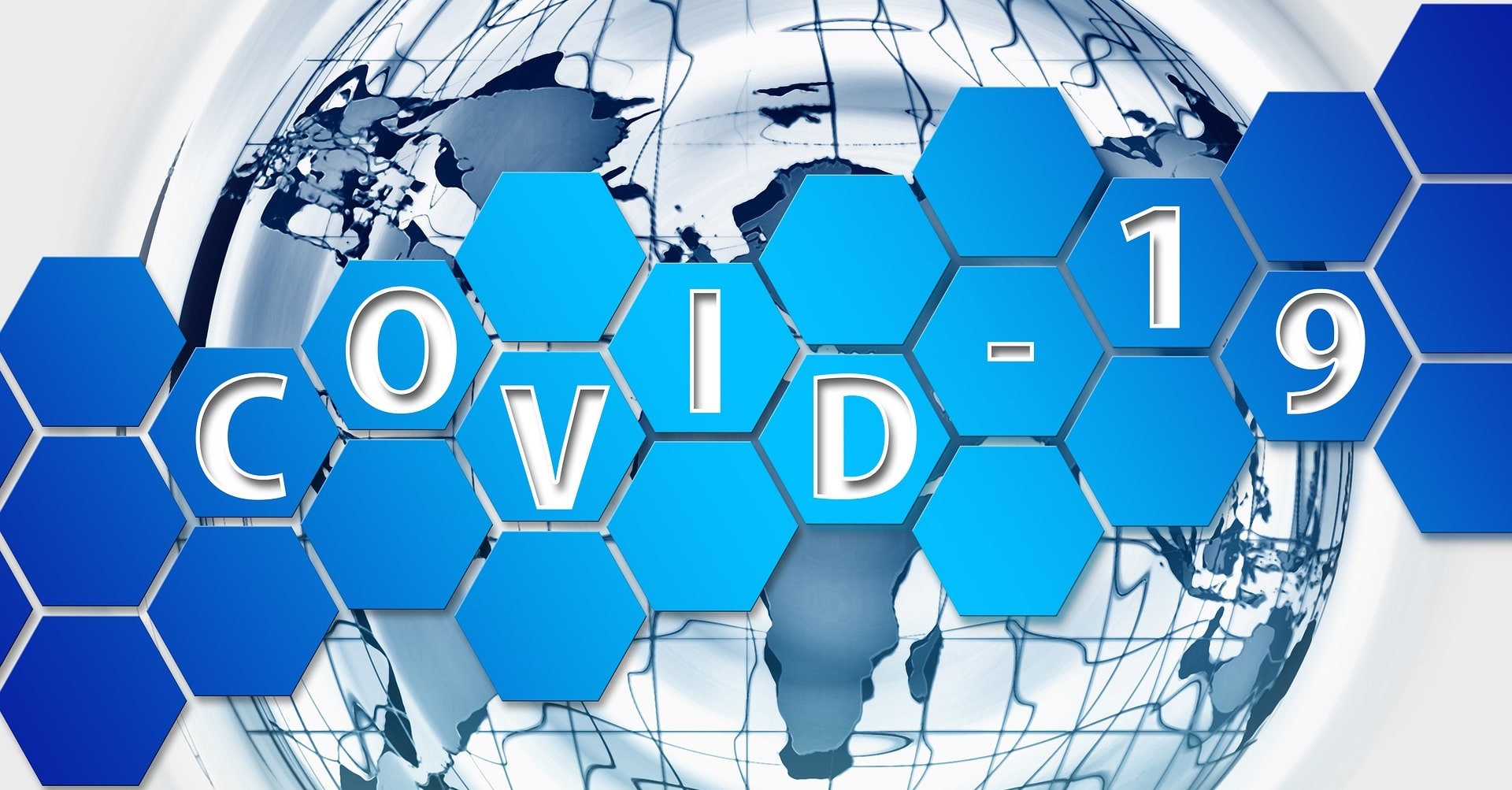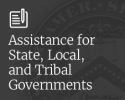
COVID-19 (CORONAVIRUS) AND OTHER RESOURCES HELP
COVID-19 Vaccination Locations on
VaccineFinder
VaccineFinder helps people find the latest information on COVID-19 vaccine availability at certain providers and pharmacies in some states external icon. In other states, information may be limited while more providers and pharmacies are added in the coming weeks.
VaccineFinder displays information about the provider:
- Types of COVID-19 vaccines available
- Website and phone number
- Hours of operation
- Instructions on how to take the next step to get vaccinated More
Bridge of Hope Resource Center, Inc. recognizes that this is an unprecedented time for many of us. In an effort to keep you informed and help you navigate through this difficult and challenging time, we have produced an informative video on COVID-19. For more information check out our COVID-19 page.
The body has many ways to help us fight infections and stay healthy. In this video, we’ll learn about antigens and how their ability to activate an immune response, leads to the production of antibodies that help to fight off foreign invaders like viruses, bacteria, and toxins. We’ll also learn about attenuated and live vaccines and their importance in helping create immunity against COVID-19 and other diseases. For more information check out our COVID-19 page.
If COVID-19 has thought us anything is that life is unpredictable and always changing. Celina Wilson speaks about the work Bridge of Hope Resource Center continues to do in the age of COVID-19. More…
WHY APPLYING FOR GOVERMENTAL ASSISTANCE IN THE AGE OF COVID-19 IS NOT A BAD IDEA
Today millions of Americans are out of work and at risk of loosing their health
insurance. This has created an enormous amount of insecurity ,anxiety and a
grim look at the future. Many who pre-pandemic had a reliable source of income
are now having to file for unemployment or PPP loans (Paycheck Protection
Program) or run the potential risk loosing it all. The new government CARES Act
( Coronavirus Aid, Relief, Economic and Security Act) was developed to provide
much needed financial assistance to families, small businesses, American
workers and preserve jobs. Regrettably, it has failed to deliver on its promise as
many complained the program lacks organization and left many without receiving
funding. It’s important to note that, this is an unprecedented time, so not one
single entity can be blamed for the back log and mistakes made in the beginning.
The Federal Government was tasked with the enormous job of issuing millions in
stimulus checks to Americans in order to avoid an economic collapse. What can
families do in the era of COVID-19? strategize a plan by first learning of available
resources in your community. Some consideration should be given at possibly
applying for governmental assistance through the Department of Social Services.
Remember due to the pandemic, DSS is recommending people apply online.
Tough times call for hard decisions. History has thought us that many who
lived through catastrophic events, found ways to survive or died. I recall in July of
2007,facing a difficult challenge involving my husband’s job. We had just finished
purchasing a new home when we learned that my husband company was closing.
The prospect of not having an income caused a great deal of anxiety and worries.
With no health coverage and mortgage payment due at the first of the month we
had to think wisely. Being people of faith, we did what came natural to us and
that was to pray and not panic. We carefully looked at our options and one of
them was COBRA (Consolidated Omnibus Budget Reconciliation Act of 1985),
simply stated, this is a way to keep your health insurance after leaving your job.
For one thing , we found it super expensive since instead of employers sharing
the cost , the burden to pay the entire coverage would now be left up to us, 102%
of the cost to be exact . For a family of four, this was certainly not an option we
were willing to consider. Another option was to tap into our retirement funds to
help pay for COBRA so we could keep our insurance benefits. Unfortunately this
would mean we would have to pay a tax penalty came tax season. We decided
instead to apply for government health care plan, in other words, governmental
assistance. Our rationale, we had worked for years and therefore, had been
contributing to the federal government programs through our payroll tax
deductions, and so in our time of need we dipped and got insured!. As it turned
out, less than a month later, my husband found a new job and we were once
again under his company health coverage.
According to Pew Research Center, the United States spends on average $114
billion on social services programs. If you and or your spouse have been
employed for a number of years, its fair to say that much of your income has
gone to payroll taxes. According to the Center on Budget and Policy Priorities, a
moderate-income wage earner will pay ,“6.9 percent in payroll taxes in 2020.”
You have been contributing and now you need access these funds to survive a
pandemic. People view social services programs as, “hand me downs,” for poor
and lazy people,” and as demining, when in fact they are a means by which one
survives, and stays afloat during hard economic times, like a pandemic
Life changing events can leave us feeling confused and lost. The best thing to do
is look at your options, understand that much of what we face in life may be
temporary and that there are always alternative solutions. Pride or fear should
never keep you from doing what’s best or what’s within your reach. Once we
weather this crisis, it’s important to formulate a plan which consist of finance,
medical , food and shelter.
There are many different approaches to surviving the Coronavirus Pandemic,
One, filing for unemployment, two, applying for a low-income job or thirdly,
seeking governmental assistance. Either can lead to some form of financial
stability, reduced stress, add productivity, guidance and purpose to one’s life or
situation.
By Celina Wilson
Please email any questions, ideas, comments suggestions you may have to,
bohopec@gmail.com. Please note, at Bridge of Hope Resource Center, we treat your
information with the highest confidentiality and privacy. It’s for this reason that you never
have to worry that your privacy or information been shared without your consent or
knowledge.
The CARES Act provides fast and direct economic assistance for American workers and families, small businesses, and preserves jobs for American industries.
COVID-19 (Coronavirus) Local Hotlines
Stony Brook Hospital
Community Resources During this uncertain time, many people can feel concerned, anxious and stressed. Ask for help if you need it.
Suffolk County Information Line
331
Stony Brook Medicine Coronavirus Information
General Coronavirus Hotline
(631) 638-1320
Coronavirus Pregnancy Hotline
(631) 444-8940
HEALTH
Health Assistance
Filing for medicaid – New York Department of Health
(855) 355-577
Medicaid Helpline
(800) 541-2831
Mental Health Services
Dash
(631) 952-3333
(877) 846-7369 text 467369
National Suicide Prevention Lifeline (24/7)
(800) 273-8255
SAMHSA (24/7) (English and Spanish)
(800) 662-4357
(Substance Abuse and Mental Health Services Administration)
Office of Mental Health Free Emotional Support Helpline
(844) 863-9314
Response Crisis Center (24/7)
(English) (631) 751-7500
(Spanish) (631) 751-7423
Mental Health Helpline
(631) 471-7242, ext. 2
Veterans Crisis Line (24/7)
(800) 273-8255 (press 1)
FINANCE
Finance Assistance
Free or Low-Cost WiFi
(800) SAFELINK (723-3546)
HEAP (for assistance paying energy bills)
(631) 853-8820
Mortgage Assistance
(631) 435-4710 or visit lihp.org
(Long Island Housing Partnership)
Medicaid or subsidized health insurance
nystateofhealth.ny.gov
FOOD
Food Assistance
SNAP (Supplemental Nutrition Assistance Program)
myBenefits.ny.gov
WIC
(Special Supplemental Nutrition Program for Women, Infants, and Children)
(631) 444-5239 or visit stonybrookmedicine/wic
Island Harvest
(516) 294-8528
or visit islandharvest.org/find-help/find-a-food-pantry
licares.org/find-help/food-locator
For emergency aid
or email emergencyresponse@licares.org
(631) 582-3663
SOCIAL
Social Assistance
Social Service Agencies in your area
(food, paying housing bills, COVID-19 screening tool in multiple languages)
Call 211 or visit 211li.org/cms
DSS Sanctions (Department of Social Services
(631) 853-3664
National Domestic Violence Hotline
(800) 799-7233
NYS Domestic and Sexual Violence Hotline (24/7)
(800) 942-6906
Text (844) 997-2121 or chat at opdv.ny.gov
(Confidential, private and secure resources staffed by professionals at the Office for the Prevention of Domestic Violence)
Adult Protective Services
631) 854-3232
CHILD ABUSE
New York State Child Abuse Hotline
(report suspected child abuse)
(800) 342-3720
The Safe Center LI
(information and support for child abuse and domestic violence)
(516) 542-0404
PARENTING SUPPORT
Family and Children’s Association (parenting resources)
(516) 746-0350 (# for Spanish)
Emergency Child Care Services for Essential Workers from SCOPE
311






Long Island Cares/The Harry Chapin Food Bank